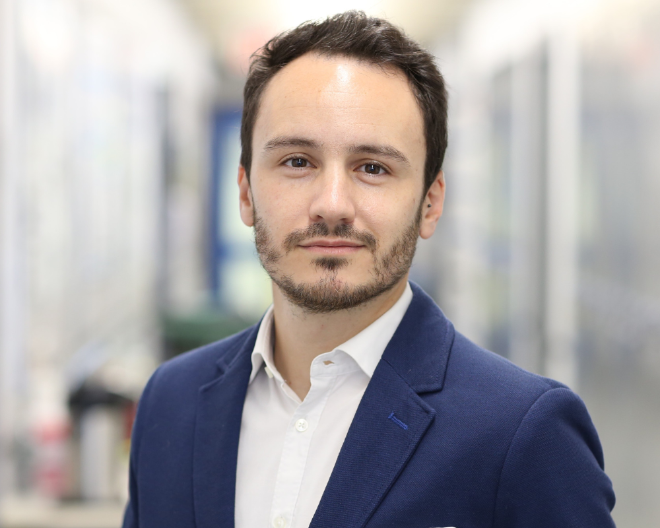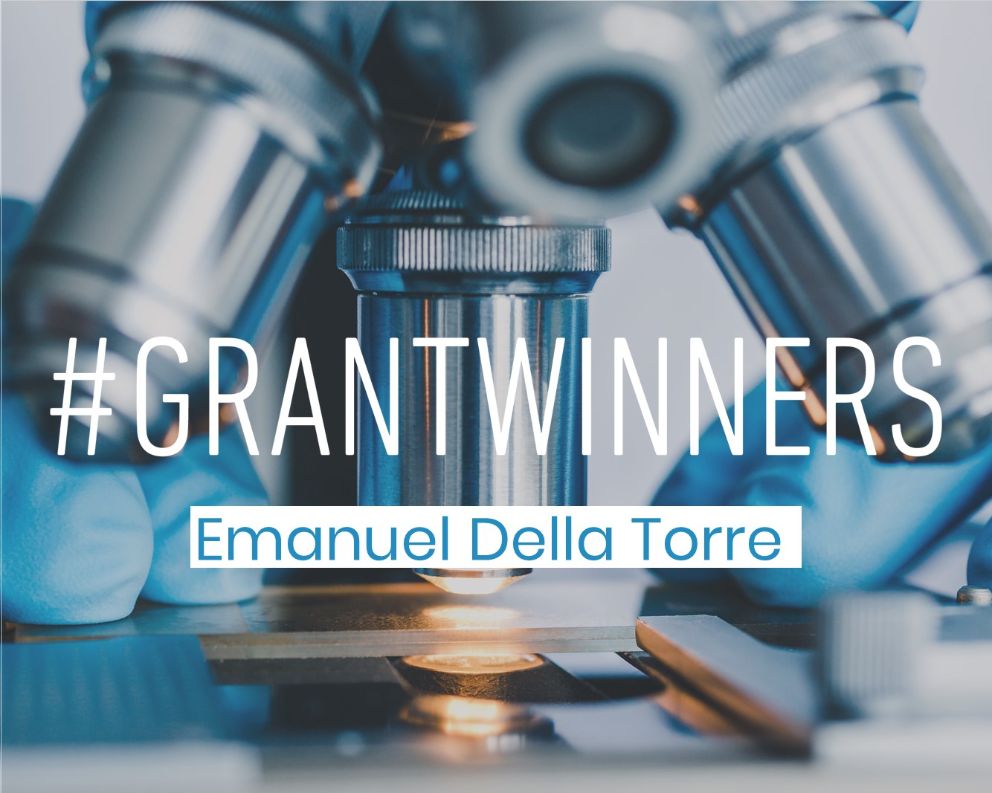
“IgG4-related disease” is a rare relapsing-remitting autoimmune disease. If left untreated IgG4-related disease can lead to severe organ failure and even death. Our immunologist Dr. Emanuel Della Torre is one of the few researchers in the scientific community devoted to the study of this disease and a UniSR winner of the 2019 “Young Researchers” Cariplo Award: thanks to Cariplo Foundation’s funding, Dr. Della Torre will dissect some mechanisms underlying the pathophysiology of IgG4-related disease, in order to identify specific therapeutic targets and potentially treatments with fewer side effects.
“IgG4-related disease”: what is it?
Dr. Della Torre explains: ““IgG4-related disease” is an emerging pathological condition in the immuno-rheumatological field, clinically characterized by expansive tumor-like lesions and by a dense fibrosis (i.e. hardening and thickening) of the affected tissues; if not treated promptly, these can lead to organ failure. IgG4-related disease was first described in 2001 in the pancreas (“autoimmune pancreatitis”) and then progressively recognized in various organs and systems”.
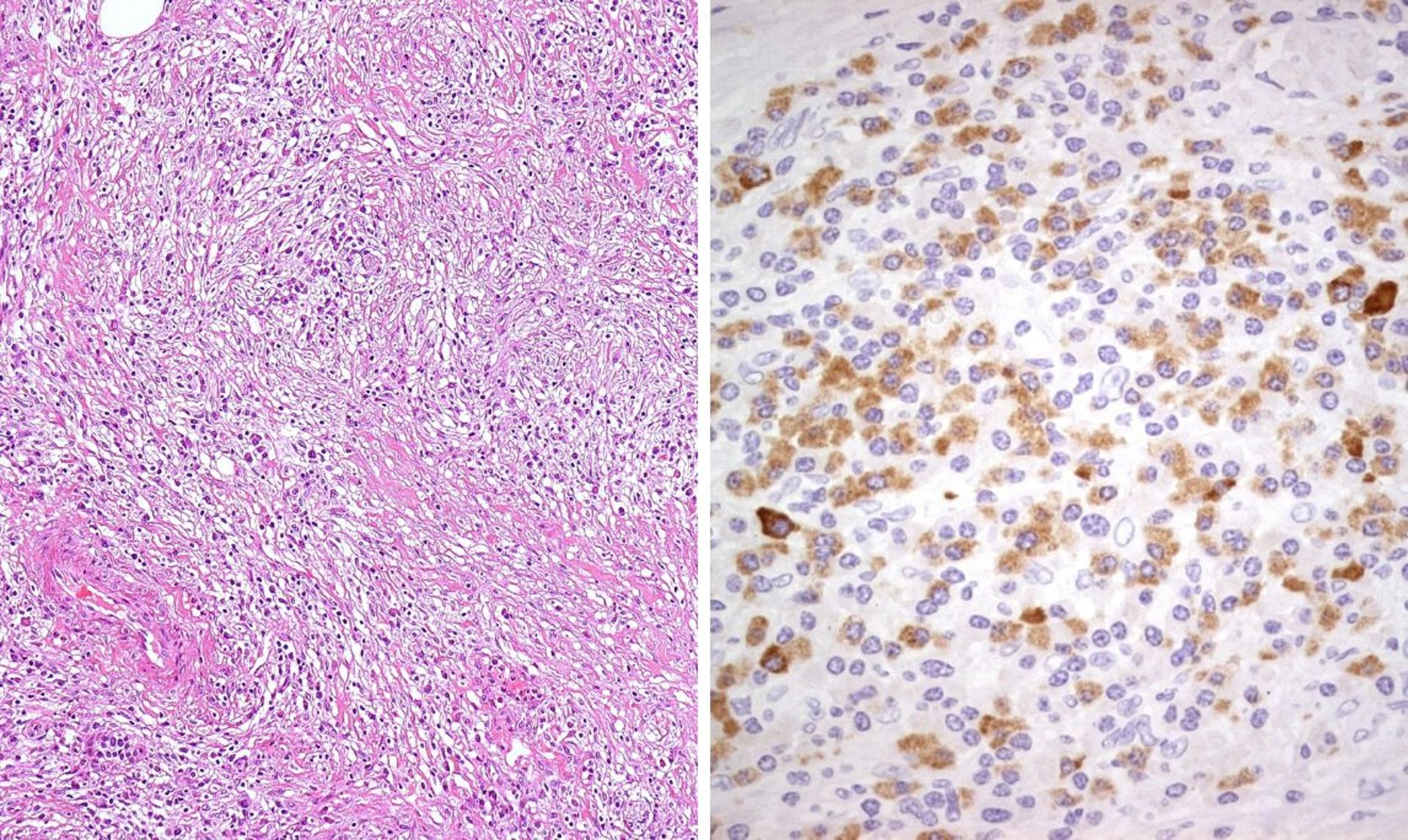
Left: Hematoxylin eosin staining of a pancreas affected by IgG4 related disease (autoimmune pancreatitis). Bundles of cells (fibroblasts) and collagen fibers are observed, drawing arabesques in the pancreatic tissue completely replaced by fibrotic phenomena. This type of fibrosis is called “storiform” from the Latin storea = mat. Right: immunohistochemistry performed on the aorta wall of a patient affected by IgG4-related disease. In darker brown, a rich infiltrate of B lymphocytes producing IgG4 antibodies is observed, typical of this pathology.
How come this particular name? “Also called antibodies, immunoglobulins (or Ig) are produced by the immune system in defense of organisms recognized as harmful foreigners. “IgG4” stands for “immunoglobulin of subclass 4”, a particular group of antibodies, present at very high levels in the blood of most patients with IgG4-related disease. In addition, an abundant infiltrate of B lymphocytes, the cells of the immune system that secrete IgG4, is observed in the affected organs”.
“IgG4-related disease” is considered a rare disease, although the incidence and prevalence of this condition are largely underestimated. To date, the pathogenetic mechanisms underlying the disease remain largely to be defined: “We are still far from having reliable diagnostic biomarkers and specific therapeutic targets. In particular, we do not know the processes that lead to the development of fibrosis and the consequent damage to the affected organs”.
An “original and bizarre” idea
Dr. Della Torre’s project is entitled “Identification of B-cell mediated pro-fibrotic molecular mechanisms in the pathogenesis of IgG4-related disease”; the aim is to study the behavior of B lymphocytes and IgG4 antibodies in these patients, with particular attention to their involvement in fibrogenesis and activation of fibroblasts (cells specialized in the healing of inflamed tissues and in the production of collagen). The hypothesis that B lymphocytes and the antibodies secreted may be implicated in the development of fibrosis arises from the fact that biological “B-cell depleting” therapies are able to “dissolve” these fibrous masses in most cases, suggesting a proactive role of these cells in the pathogenesis of the disease. “Our idea is original and bizarre at the same time because it challenges the “sacred dogmas” of immunology, according to which B lymphocytes are cells exclusively specialized in the production of antibodies, in the education and activation of T lymphocytes. “IgG4-related disease”, in fact, offers us the opportunity to demonstrate that B lymphocytes can also be directly involved in the development of fibrosis and tissue remodeling, and to discover unprecedented fibrotic properties of these cells”.
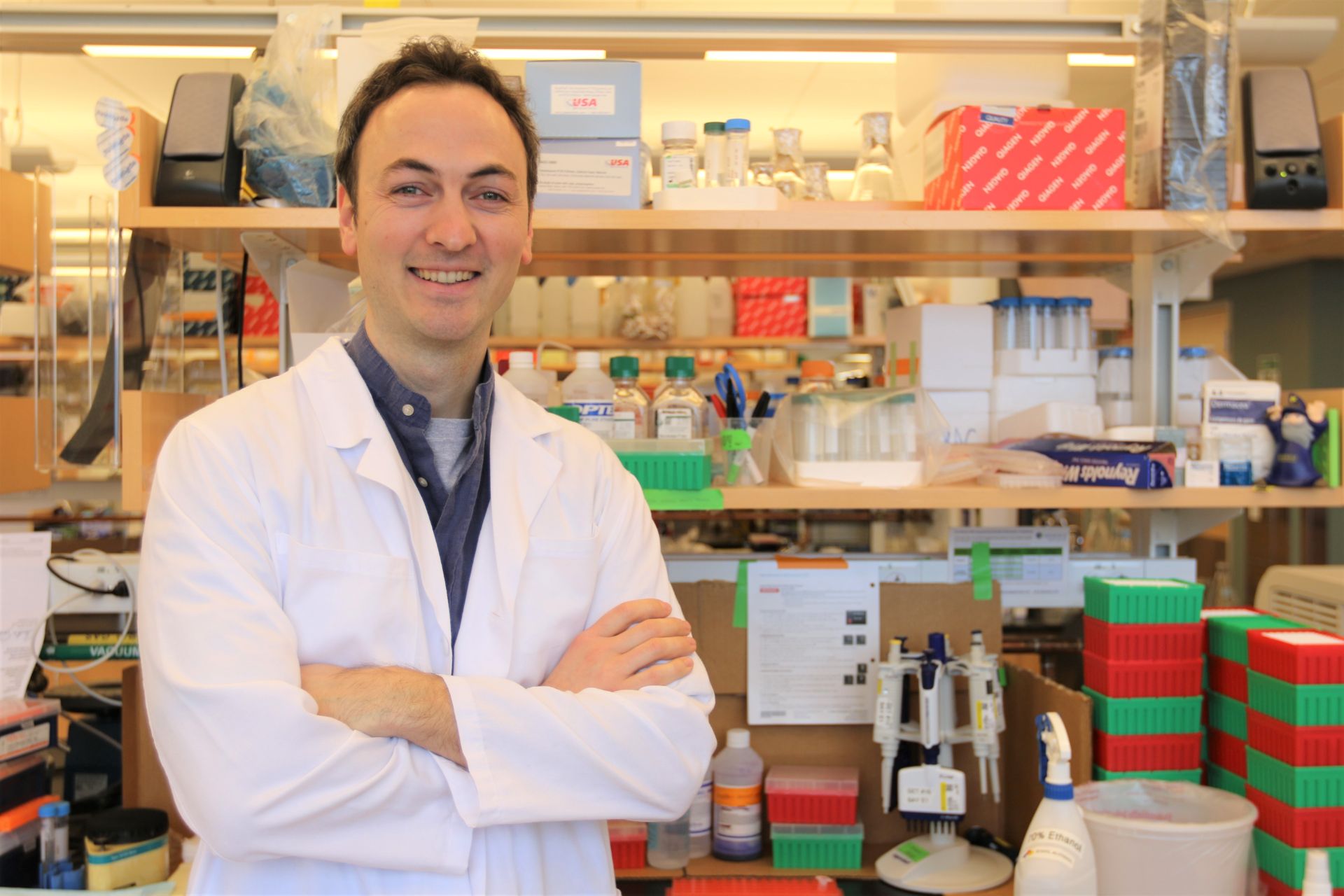
Emanuel, from Harvard to Italy, world reference for IgG4-related disease
“My interest in “IgG4-related disease” raised almost ten years ago when, during my residency in Clinical Immunology, I described new clinical manifestations of this rare inflammatory condition and I won a scholarship to continue my studies at the Massachusetts General Hospital in Boston-Harvard, in the United States. Since then, we have contributed to the publication of numerous hallmark works in prestigious international scientific journals that have allowed us to become an Italian and European reference center for this disease”. To date, Dr. Della Torre and his team follow over 200 patients with “IgG4-related disease” at the Immunology, Rheumatology, Allergology and Rare Diseases Unit of the San Raffaele.
“The therapies currently available for “IgG4-related disease” are based on medium-high dosage cortisone and, in non-responsive cases, on “anti-B lymphocyte” biological drugs”. Although both therapies are remarkably effective, the disease relapses in most cases exposing patients to repeated courses of immunomodulatory treatments and possible side effects. “Our project has the ambitious goal of studying finer molecular mechanisms connected with the pathogenesis of the disease in order to identify specific therapeutic targets and, potentially, treatments with fewer side effects. More generally, the identification of a pro-fibrotic role of B lymphocytes would have important implications for a series of “fibrous” pathologies that currently have no effective treatments”.
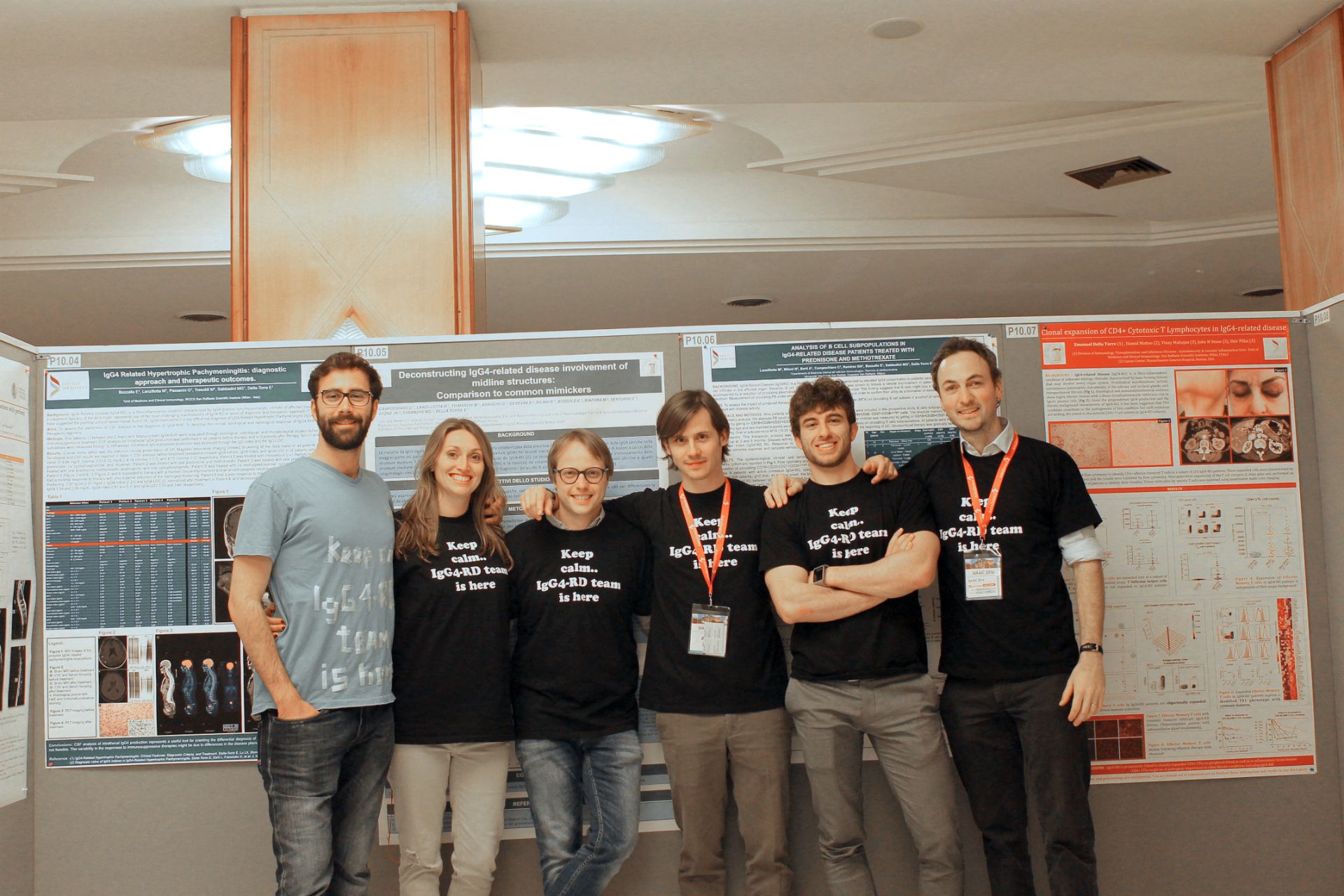
A significant funding
The gratitude of Dr. Della Torre also goes to the Cariplo Foundation: “This funding means a lot to me. First of all, it is an important certification of the “goodness”" of the experimental hypothesis and of the scientific relevance of our project, especially in consideration of the rigorous revision process carried out. On the other hand, this funding will allow me to carry on a fascinating idea that I have cradled for some time and that otherwise would not have seen the light. I also hope that this milestone can be the first stone for devising other projects and obtaining more funding in order to consolidate my research career in in Italy. Lastly, Cariplo funding is mainly the result of years of work carried out by a small group of friends (more than just colleagues) supported daily by the esteem and affection of our patients. With our project we also aim to spread the knowledge of the “IgG4-related disease” with seminars, conferences and, hopefully, with the creation of a patient association to give a social echo to our daily clinical and scientific commitment”.
Tags:
You might be interested in

UniSR ranked 1st in Italy for Research and Teaching
/resolutions/res-c660x528/Veschetti_Cariplo_P.-Aeruginosa_UniSR-(1).jpg)
Uncovering the hidden role of bacterial microRNAs in chronic respiratory diseases

A New Approach to Enhance Immunotherapy in Multiple Myeloma
